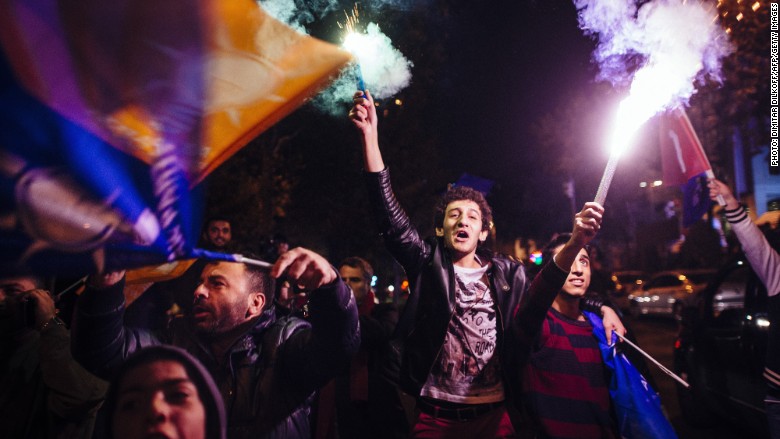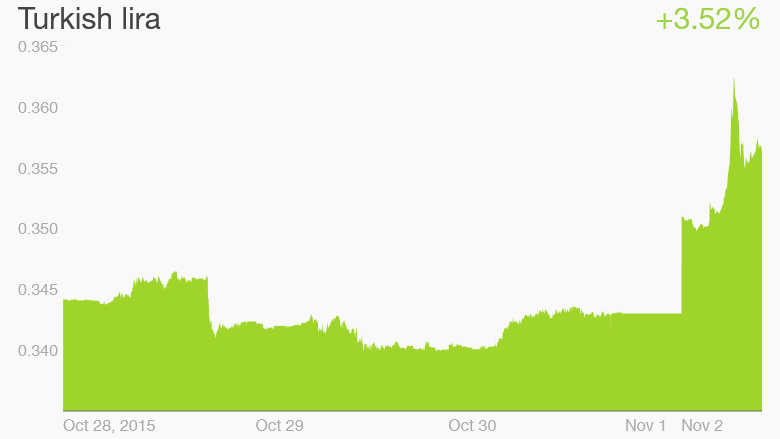
Turkey is rallying! But can it last?
Investors are cheering a surprise election win for President Recep Tayyip Erdogan's ruling AKP party in Sunday's parliamentary elections. The Turkish lira is up 3.6% against the dollar Monday, and the country's benchmark stock index rallied by about 5%.
The triumphant victory brings an end to months of political deadlock after an earlier inconclusive poll. But analysts are striking a note of caution: The political instability might be gone, but the country's deep-seated economic problems are not.
"It remains to be seen whether the party will try to regain its economic policymaking credibility that had slowly eroded over the past few years," noted William Jackson, senior emerging markets economist at Capital Economics.
Turkey's growth has slumped in recent years. The International Monetary Fund expects the economy to grow by 3.1% this year and 3.6% in 2016 -- way below the 9% it experienced in 2010 and 2011.
The new government will need to brace for the shock of an interest rate hike in the U.S., which could come as soon as December.
Turkey has reason to fear higher U.S. interest rates because it has borrowed heavily in dollars, and it imports much more than it exports.
The lira has already fallen by about 17% against the dollar this year. A move by the Fed to raise rates could further boost the dollar, making Turkey's imports a lot more expensive. The cost of servicing Turkey's short term foreign debt of nearly $125 billion, or roughly 8% of GDP, would also rise.
The IMF says Turkey needs to become less reliant on foreign borrowing so that it becomes less vulnerable to currency swings.
"Turkey needs a reform-oriented government and an independent, cool-headed central bank," noted Wolf-Fabian Hungerland, an economist at Berenberg.
The country's central bank has been caught between the markets and the government. Despite rising inflation and pressure on the currency, it has kept interest rates unchanged for most of the year. The government is strongly opposed to higher borrowing costs because it is worried about the impact on consumers.
"The (bank) did not want get into the crosshairs of the government," Hungerland said.

Related: What next for Turkey's roller-coaster economy?
Turkey had been stuck in limbo since June, when the AKP failed to win a majority in parliament. Attempts to form a new government failed, and a new election was called. The result on Sunday means AKP should be able to govern without the need for a coalition partner until 2019.
The strong mandate will give the party a chance to bring in economic reforms, but may also revive efforts by Erdogan to tighten his grip on power by transforming Turkey's government into a presidential system. He has been ruling in Turkey for over 12 years, first as the prime minister, and now as the president.
"The party's track record of protecting democratic values has plummeted over the past months, and the consolidation of its dominance could worsen concerns over checks and balances in Turkey," said Roxana Hulea, a strategist at Societe Generale.


